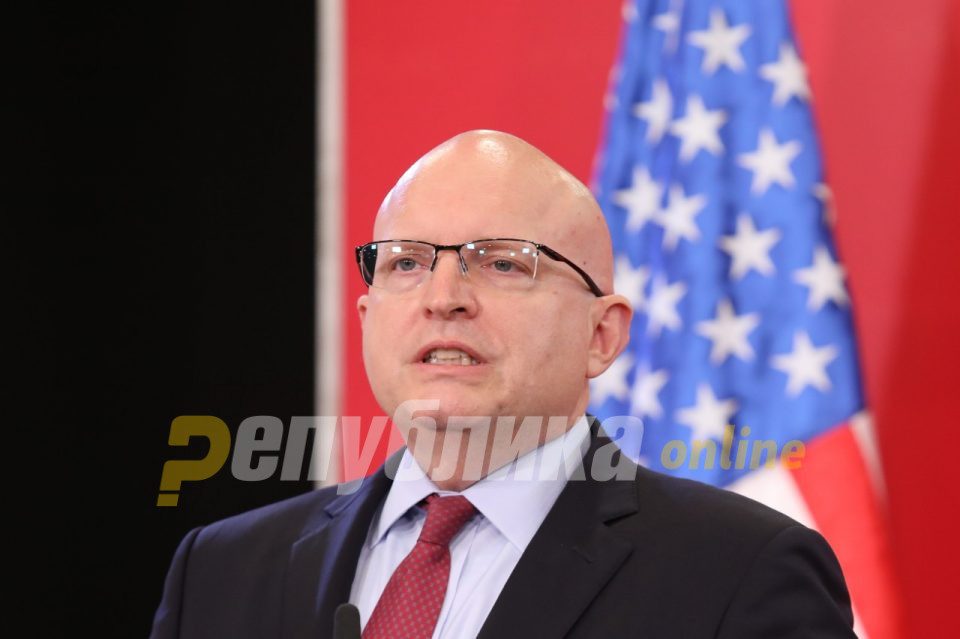US Assistant Secretary of State Philip Reeker, who is a former Ambassador to Macedonia, wrote to Zoran Zaev to encourage him in the dispute with Bulgaria, and took the position that the dispute should not hamper Macedonia’s EU accession talks.
Because the United States values your partnership and remains committed to supporting (North) Macedonia’s further European integration, I am writing to share our disappointment that EU member states failed to reach agreement on approving a negotiating framework for (North) Macedonia. Your country has proven itself a confident new Ally in NATO and a great friend of the United States. EU accession remains a critical mutual interest and we will continue to advocate with our European partners in support of holding the inter-governmental Conference for (North) Macedonia during the German Presidency. We understand the challenges associated with working through intricate disputes but (North) Macedonia is no stranger to doing the hard work necessary to achieve greater peace and prosperity for itself and its neighbors. You proved this in security (?) the historic Prespa Agreement and by laying the foundation for a stronger relationship with Bulgaria through the 2017 Friendship Treaty. We encourage you, and EU member states, to continue to resolve bilateral disputes outside the EU accession process while aspirants simultaneously progress through the opening and closing of chapters. We appreciate your effort to negotiate in good faith, and to (sic) maintaining your commitments to secure the European future (North) Macedonia has proven it deserves. The Untied States will continue to support these endeavors, and it is our hope that your hard work results in continued progress on your EU accession path. We remain your partners, and we are optimistic that an IGC, marking the start of (North) Macedonia’s negotiations with the EU, will be held soon, Reeker wrote to Zaev.
During the long dispute with Greece, and now during the growing dispute with Bulgaria, Macedonia has demanded that it is allowed to open EU accession talks and to join NATO, while conducting bilateral talks with the two countries that hold veto power. But Greece and so far Bulgaria have been reluctant to give up their veto leverage over Macedonia.





Comments are closed for this post.